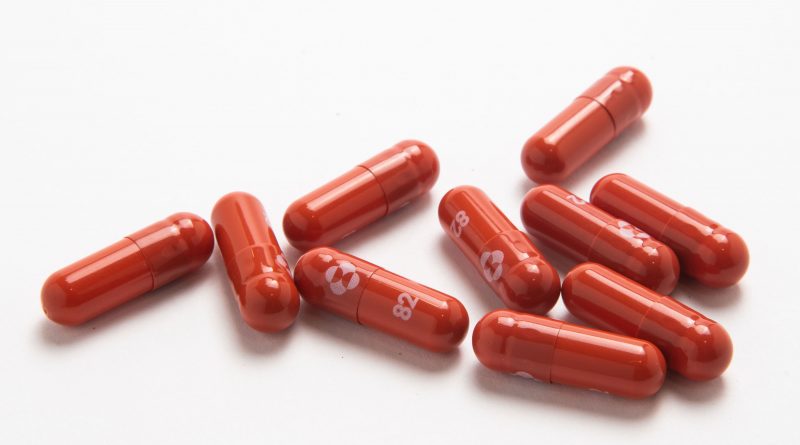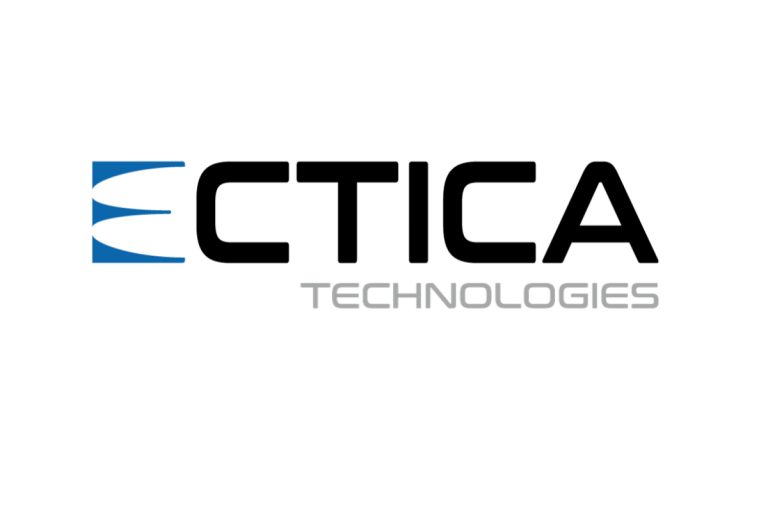Merck and Ridgeback’s Oral Antiviral Molnupiravir Can Halve COVID-19 Risk of Hospitalisation
Interim Analysis of Phase 3 Study shows Merck and Ridgeback’s investigational oral antiviral Molnupiravir has reduced the risk of hospitalization or death by approximately 50 percent compared to placebo for patients with mild or moderate COVID-19.
Merck intends to submit an Emergency Use Authorization (EUA) application to Regulatory Agencies in the US and globally, as soon as possible. Molnupiravir, if approved, might be the very first oral antiviral treatment for COVID-19.
Molnupiravir decreased the risk of hospitalization or death by approximately 50% in Phase 3 study
Merck (NYSE: MRK) and Ridgeback Biotherapeutics announced on Friday that at an interim analysis of the Phase 3 MOVe-OUT study an investigational oral antiviral drug, molnupiravir (MK-4482, EIDD-2801), has shown a dramatic decrease of hospitalization or death rates in at-risk, non-hospitalized adult individuals with mild-to-moderate COVID-19 infection. At the interim analysis, molnupiravir decreased the risk of hospitalization or death by about half or approximately 50%. Moreover, only 7.3 percent of patients who got molnupiravir were hospitalized or died by Day 29 after randomization, compared to 14.1 % of placebo-treated individuals (53/377); p=0.0012. Participants who took molnupiravir had no fatalities until Day 29, versus 8 casualties in patients who received placebo.
Due to these encouraging positive results, enrollment into the trial has been suspended early at the suggestion of an independent Data Monitoring Committee and in collaboration with the US Food and Drug Administration (FDA). Based on these findings, Merck intends to submit a EUA application to the US FDA as soon as feasible, as well as marketing applications to other regulatory authorities globally.
Robert M. Davis, Chief Executive Officer and President of Merck commented:
“More tools and treatments are urgently needed to fight the COVID-19 pandemic, which has become a leading cause of death and continues to profoundly affect patients, families, and societies and strain health care systems all around the world. With these compelling results, we are optimistic that molnupiravir can become an important medicine as part of the global effort to fight the pandemic and will add to Merck’s unique legacy of bringing forward breakthroughs in infectious diseases when they are needed most. Consistent with Merck’s unwavering commitment to save and improve lives, we will continue to work with regulatory agencies on our applications and do everything we can to bring molnupiravir to patients as quickly as possible. On behalf of all of us at Merck, I thank our network of clinical investigators and patients for their essential contributions to the development of molnupiravir.”
Wendy Holman, chief executive officer of Ridgeback Biotherapeutics said:
“With the virus continuing to circulate widely, and because therapeutic options currently available are infused and/or require access to a healthcare facility, antiviral treatments that can be taken at home to keep people with COVID-19 out of the hospital are critically needed. We are very encouraged by the results from the interim analysis and hope molnupiravir, if authorized for use, can make a profound impact in controlling the pandemic. Our partnership with Merck is critical to ensuring rapid global access if this medicine is approved, and we appreciate the collaborative effort to reach this important stage of development.”
About the results of the interim analysis
The planned interim analysis looked at data from 775 participants who entered the Phase 3 MOVe-OUT study on or before August 5, 2021. The study was approaching complete recruitment of the Phase 3 sample size of 1,550 patients or about 90%of the targeted sample size, at the time of the decision to cease enrollment based on very successful efficacy result. All patients had to have symptoms within 5 days and laboratory-confirmed mild-to-moderate COVID-19, of trial assignment. At the time of enrollment, all patients had to have at least one risk factor linked to a poor disease outcome. Molnupiravir decreased the rate of hospitalization and/or mortality in all major categories; effectiveness was unaffected by symptom onset time or underlying risk factors. Molnupiravir also showed consistent effectiveness across viral variants Gamma, Delta, and Mu, based on the subjects with accessible viral sequencing data (about 40% of participants). In both the molnupiravir and placebo groups, the incidence of any adverse event was comparable (35 % and 40 % , respectively).
Similarly, the rate of drug-related side effects was comparable (12 % and 11 % , respectively). Fewer participants discontinued study therapy due to an adverse event in the molnupiravir group (1.3%) versus to the placebo group (3.4%).
Merck’s expects to produce 10 mill courses of the oral treatment by the end of 2021
In anticipation of the results from MOVe-OUT, Merck has been producing molnupiravir at risk. Merck expects to produce 10 million courses of treatment by the end of 2021, with more doses expected to be produced in 2022.
Earlier this year, Merck entered into a procurement agreement with the U.S. Government under which Merck will supply approximately 1.7 million courses of molnupiravir to the U.S. government, upon EUA or approval from the U.S. FDA. Additionally, Merck has entered into supply and purchase agreements for molnupiravir with other governments around the world, pending regulatory authorization, and is continuing discussions with governments globally.
Merck is committed to providing timely access to molnupiravir globally, if it is authorized or approved, and plans to implement a tiered pricing approach based on World Bank country income criteria to reflect countries’ relative ability to finance their health response to the pandemic.
As part of its commitment to widespread global access, Merck previously announced that the company has entered into non-exclusive voluntary licensing agreements for molnupiravir with established generic manufacturers to accelerate the availability of molnupiravir in more than 100 low- and middle-income countries (LMICs) following approvals or emergency authorization by local regulatory agencies.
More About the MOVe-OUT Study
The MOVe-OUT trial (MK-4482-002) (NCT04575597) was a global Phase 3, randomized, placebo-controlled, double-blind, multi-site study of non-hospitalized adult patients with laboratory-confirmed mild to moderate COVID-19, at least one risk factor associated with poor disease outcomes, and symptom onset within five days prior to randomization. The primary efficacy objective of MOVe-OUT is to evaluate the efficacy of molnupiravir compared to placebo as assessed by the percentage of participants who are hospitalized and/or die from the time of randomization through Day 29.
The Phase 3 portion of the MOVe-OUT trial was conducted globally, including in more than 170 planned sites in countries including Argentina, Brazil, Canada, Chile, Colombia, Egypt, France, Germany, Guatemala, Israel, Italy, Japan, Mexico, Philippines, Poland, Russia, South Africa, Spain, Sweden, Taiwan, Ukraine, the United Kingdom and the United States. For further information about the MOVe-OUT trial, please visit clinicaltrials.gov.
The most common risk factors for poor disease outcome included obesity, older age (>60 years), diabetes mellitus, and heart disease. To date, the Delta, Gamma, and Mu variants have accounted for nearly 80% of the evaluable cases in the trial. Recruitment in Latin America, Europe, and Africa accounted for 55%, 23% and 15% of the study population, respectively.
About Molnupiravir (MK-4482/EIDD-2801)
Molnupiravir (MK-4482/EIDD-2801) is an investigational, orally administered form of a potent ribonucleoside analog that inhibits the replication of SARS-CoV-2, the causative agent of COVID-19. Molnupiravir has been shown to be active in several preclinical models of SARS-CoV-2, including for prophylaxis, treatment, and prevention of transmission. Additionally, pre-clinical and clinical data have shown molnupiravir to be active against the most common SARS-CoV-2 variants. Molnupiravir was invented at Drug Innovations at Emory (DRIVE), LLC, a not-for-profit biotechnology company wholly owned by Emory University, and is being developed by Merck & Co., Inc. in collaboration with Ridgeback Biotherapeutics. Ridgeback received an upfront payment from Merck and also is eligible to receive contingent payments dependent upon the achievement of certain developmental and regulatory approval milestones. Any profits from the collaboration will be split between the partners equally. Since licensed by Ridgeback, all funds used for the development of molnupiravir have been provided by Merck and by Wayne and Wendy Holman of Ridgeback.
Molnupiravir is also being evaluated for post-exposure prophylaxis in MOVe-AHEAD, a global, multicenter, randomized, double-blind, placebo-controlled Phase 3 study, which is evaluating the efficacy and safety of molnupiravir in preventing the spread of COVID-19 within households.
For more information, please visit http://merckcovidresearch.com.
Recommended Companies
Ad
More Headlines







